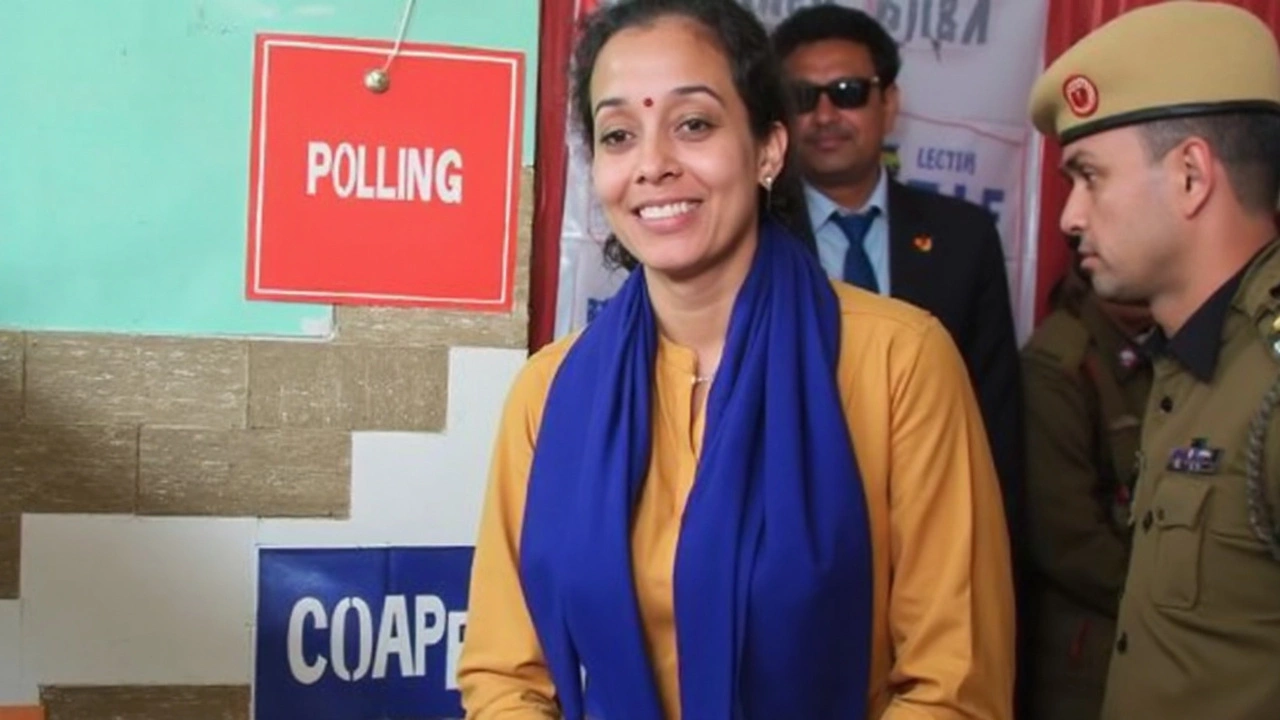
The 2025 Delhi Legislative Assembly elections turned heads with high drama in the Kalkaji constituency, where Atishi from the Aam Aadmi Party (AAP) faced stiff competition from the Bharatiya Janata Party's (BJP) Ramesh Bidhuri. As Delhiites witnessed the counting unfold on February 8, 2025, early trends had BJP supporters on the edge of their seats. Bidhuri took an initial lead, sparking talk of possible upsets, with him ahead by more than 1,600 votes in the fourth round.
But Atishi, the incumbent Chief Minister, known for her unwavering focus on education reforms in Delhi, managed a remarkable comeback. By the final counts, she reversed the tide, securing her victory with a margin of over 3,500 votes. While the BJP surged across the state, showing leads in 29 seats and eventually bagging 45 seats, Kalkaji remained resiliently with AAP.
Election Day Controversies
Dramatic scenes played out beyond vote tallies. Delhi Police took action against Bidhuri's son for alleged breaches of the Model Code of Conduct. Adding to the day’s tensions, two employees from Atishi's camp were detained with ₹5 lakh cash at the site of the vote count. These controversies marred the electoral process, pointing to underlying tensions and the stakes at play.
Against a broad canvas, Atishi’s retention of her seat stood out amidst BJP's significant gains across Delhi. AAP managed to keep 21 seats, but BJP's hike in seats marked a shift in the city's political dynamics.
The Candidates and the Stakes
Atishi's track record has been largely characterized by pushing for educational advancements in the capital, a factor that perhaps bolstered her personal image even when AAP faced challenges on a broader scale. Her opponent, Ramesh Bidhuri, isn't new to Delhi's political scene. Known as a sitting MP and a forceful speaker, his campaign targeted perceived governance failures. But his early optimism in claiming Atishi’s 'farewell' proved premature.
Congress's Alka Lamba, once part of AAP, found herself struggling, ending third in the contest. This was her second consecutive electoral defeat in Delhi, possibly hinting at the electorate's preference shifts or campaign missteps.
Amidst charged political rhetoric, Atishi characterized the election as 'a battle between good and evil', while even in temporary leads, Bidhuri was confident of an impending BJP wave. Kalkaji’s eventual decision underscored Atishi’s appeal, though the ripple effect of the BJP's surge represented a substantial shift in voter dynamics.
The Kalkaji outcome offered insights into how personal popularity can clash and coexist with broader party performances. And for the constituents, Atishi remains at the helm, aspiring to continue her reformist approach in a capital city painted increasingly in saffron hues by the BJP.